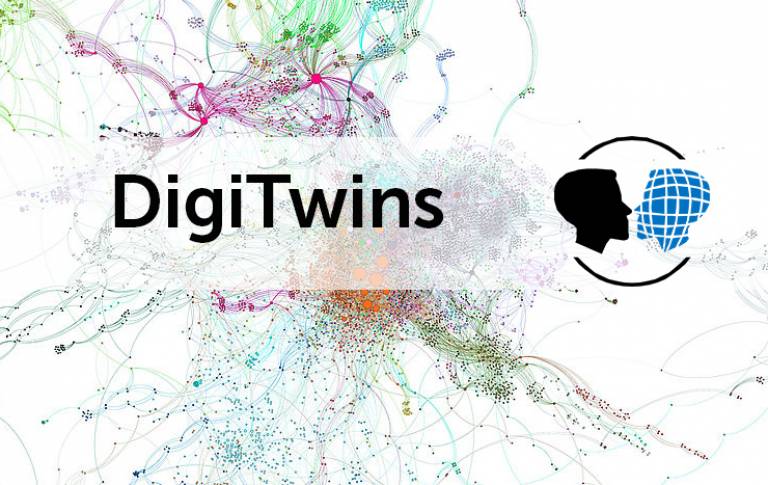European Commission supports DigiTwins
11 June 2018
On 18 May, UCL-backed DigiTwins received an invitation from the European Commission to enter the next stage of the competition to become an EU Flagship for Future and Emerging Technologies.

DigiTwins, a large research initiative in Europe and beyond, aims to revolutionise healthcare and biomedical research for the benefit of citizens and society through the creation of digital twins.
“Today we’re a significant step closer to the establishment of a system of truly personalized healthcare and health maintenance throughout Europe, which will save millions of lives and billions of healthcare costs in the future.”, said Professor Hans Lehrach, from the Max Planck Institute for Molecular Genetics, who is leading the initiative. The DigiTwins Coordination Team has gathered to celebrate and to plan the next steps leading up to the submission of the full proposal to the EC in September this year.
Since its foundation, DigiTwins has grown from an innovative idea to an initiative with more than 200 partners in 32 countries – among them, three academic representatives from UCL in the Department of Computer Science and Cancer Institute. In February, the DigiTwins initiative submitted a first proposal to the EC and thus took the first step, of a three-stage process, towards becoming an EU Flagship for Future and Emerging Technologies (FET). Stage two, in which a full proposal for a candidate FET-Flagship is submitted, will kick-start with a DigiTwins partner meeting in Berlin at the end of this month. If successful, DigiTwins would be financially supported by the EC over a one-year period to prepare for stage three: the final selection of the FET-Flagships.
The UCL representatives on the DigiTwins come from a range of specialisms, bringing expert perspectives on healthcare and data to the strategic direction of the project. Prof Stephan Beck, Professor of Medical Genomics at UCL, was delighted to learn of the project’s success: “I am very excited to be part of DigiTwins and the prospect of expanding our pioneering technologies in personalised genomics and epigenomics to the European level.”
Prof Angela Sasse, FREng, who is Professor of Human-Centred Security at UCL Department of Computer Science, researches the human-centred aspects of security, privacy, identity and trust. The work of Dr Emiliano De Cristofaro, Reader in Security and Privacy Enhancing Technologies in UCL CS, aims to understand and counter security and privacy issues related to collection and sharing of health-related data.
On hearing the news, Angela described how she and Emiliano, as information security specialists, were informing the project: “Health data is of course very sensitive, so transparency in how the data is used, and trust in the system and those who are using the data is essential. Our research will explore with people what feedback they want about access and benefits, and if and how they want to control access to their data.”
Further information
- DigiTwins website
- Source: DigiTwins press release and UCL Computer Science
About DigiTwins
DigiTwins is a large research initiative that aims at establishing a personal Digital Twin for every European citizen. The community consists of more than 200 partners from industry, academic and clinical research institutions in 32 different countries. DigiTwins combines a transdisciplinary team of visionary scientists, clinicians, public health experts, policy makers, medical informatics experts, experts in Artificial Intelligence, experienced science management professionals, serial entrepreneurs, industry researchers and patient group representatives as well as experts from cross-cutting fields, such as economics, regulation, ethics, health insurance, data security and privacy. The initiative is led by Professor Hans Lehrach (Charité – Universitätsmedizin Berlin), Dr Nora Benhabiles (CEA - French Alternative Energies and Atomic Energy Commission) and Dr Rolf Zettl (BIH - Berlin Institute of Health).
 Close
Close

